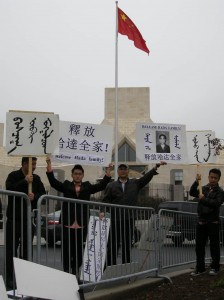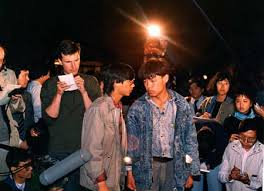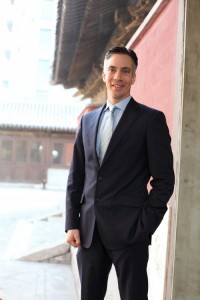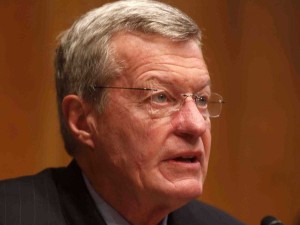The Widening Gyre: The Changed Power Dynamics of Journalists Visas
After publishing an article concerning the Washington Post‘s 2010 decision to pull author Peter Manseau’s 8,000 word magazine piece on Washington D.C.’s Falun Gong community, the Post‘s former executive editor, Marcus Brauchli, returned China Law & Policy‘s call. Brauchli, executive editor in 2010, denied insinuations of self-censorship: “The Washington Post did not nor would it ever have killed a piece of journalism because of concerns about getting visas for its reporters. The Post made its [publication] decision, and as far as I know always makes its decisions, based on journalistic merit” Brauchli said.
But Brauchli, with decades of experience reporting from China, was far from ignorant of the China visa issues. As of last Thursday, many but not all of the New York Times and Bloomberg China correspondents received press cards from the Ministry of Foreign Affairs, enabling them to apply for their renewed visas with the Public Security Bureau. But that does not mean the crisis is over. As Brauchli noted to China Law & Policy, Beijing’s current approach to journalists’ visas appears to be a much more organized effort compared to the past. Quite a number of individuals share Brauchli’s feelings, with many believing thatafter 2008, the Chinese government has been more inclined to use the journalist visa renewal or visa application process to intimidate and possibly censor foreign journalists.
But are these feelings accurate? Even if the Times and Bloomberg journalists’ visas are renewed with full year ones – not the month to sixth month temporary journalist visas given to Paul Mooney and Melissa Chan before they were effectively barred from China – Beijing will probably continue its approach. It came fairly close to shutting down the China offices of two major news organizations. As a result, it is imperative that the changed dynamics – both in U.S. newsrooms and in China – are understood.
Things Fall Apart: The John Pomfret, Ian Johnson & Andrew Higgins Visa Experiences
John Pomfret is perhaps the most famous American journalist to be expelled from China. As a 30-year-old Beijing correspondent for the
Associated Press, Pomfret found himself in the middle of the 1989 Tiananmen Square protests, protests that would bring as many as a hundred thousand people to the Square, that would shake the Chinese Communist Party to its core and that would culminate in the massacre of hundreds on the night of June 3 and into the early morning hours of June 4.
Ten days after the crackdown, Pomfret was expelled from China. The Chinese government accused him – along with Voice of America correspondent Al Pessin who also was expelled – of stealing state secrets and violating martial law.
Pomfret’s journalist career would take him to other places and other crises, but eventually it would come back in China. As Pomfret recounts in his book, Chinese Lessons: Five Classmates and the Story of the New China, in 1997, the Washington Post, his employer at the time, sought to elevate him to Beijing Bureau chief. But the Chinese government had not forgotten his coverage of Tiananmen eight years earlier; the Chinese Embassy told the Washington Post: “please try another name.”
Pomfret would be approved for a journalist visa but not without great effort on the part of the Washington Post. Fortunately for Pomfret, Katharine Graham, head of the Washington Post at the time and a powerful force in her own right, got involved. She invited the Chinese ambassador to tea and made sure that her friend Henry Kissinger mentioned Pomfret’s case to the Vice Premier Qian Qichen. Additionally, according to a source close to the Washington Post, managing editor Bob Kaiser and Beijing Bureau chief Steve Mufson raised Pomfret’s visa directly with then President Jiang Zemin in an off-the-record conversation during their October 1997 interview. As he recounts in Chinese Lessons, Pomfret himself decided to write a “self-examination” about his prior attitude in response to a Chinese government official’s request that Pomfret write a letter applying for the Washington Post position. On Christmas Eve 1997, Pomfret received word that his visa was approved. Since then, Pomfret has never had a visa problem.
If Tiananmen was Pomfret’s roadblock to China, Falun Gong was Ian Johnson’s. Between 1997 and 2001, Johnson was one of the Wall Street Journal‘s China correspondents. Like Pomfret, he was covering China during a major crackdown, this time on a burgeoning spiritual group that was able to amass tens of millions of followers in less than ten years: Falun Gong.
In the beginning, Falun Gong, which uses traditional qigong exercises and draws upon the teachings of Daoism and Buddhism, was ambiguously tolerated by the Chinese government. But on April 25, 1999, in response to a negative article published in a state-run magazine, an estimated 10,000 Falun Gong followers conducted a day-long silent meditation protest outside the Chinese government headquarters. As Johnson recounts in his book, Wild Grass: Three Portraits of Change in Modern China, the fact that one group could amass so many people in one place without the State Security knowing, horrified the leadership. Falun Gong – now perceived as a threat to its rule – would no longer be tolerated. In July 1999, Beijing banned Falun Gong and began a violent crackdown against members of the group. As Johnson recounted in his Pulitzer Prize-winning series on the crackdown for the Wall Street Journal and later in Wild Grass
, Beijing permitted the crackdown to be enforced by all means necessary, even if that meant that many would die, a fact that Johnson recounted in his reports.
In 2001, Johnson left China to cover Europe for the Wall Street Journal. But in 2007, the Journal sought to bring him back to China. Again, prior China coverage would prove problematic in obtaining a visa and would require the powerful resources of his news agency. According to an individual who had been involved in the matter, the Chinese government initially told the Journal that Johnson would never get back into China. But as this source told China Law & Policy, the Journal began its lobbying in earnest with senior editors meeting with the Chinese ambassador to the U.S. and eventually Rupert Murdoch raising the issue directly with the Chinese government in Beijing. Johnson also had to write a self-criticism. But by 2008, right around the time Beijing was to host the Olympics, Johnson’s journalist visa was informally approved and was issued in early 2009 according to the source involved in the matter.
But less than a year later, Andrew Higgins’ attempt to obtain a journalist visa would end with a different outcome. In 2009, the Washington

A group of nationalist Inner Mongolians protest in front of the Chinese Embassy, seeking the release of a Mongolian activist.
Post hired Higgins ostensibly as its Beijing Bureau chief and again the Post would need to lobby to get their chief into China as prior reporting had put Higgins on a blacklist. In 1991, Higgins was a Beijing correspondent to the British Independent newspaper, covering the Chinese government’s secret crackdown against ethnic Mongolian intellectuals in the Chinese province of Inner Mongolia. According to a Human Rights Watch report, after being found in possession of a top secret Chinese Communist Party (CCP) document that ordered the harsh crackdown(a.k.a. Document 13), Higgins was expelled from China.
This time the Post was not able to overcome Higgins’ past. According to a source involved in the Higgins negotiations, the Post raised Higgins’ visa issue in every high-level meeting with Chinese officials, including the Chinese Ambassador; then executive editor Marcus Brauchli and publisher Katharine Weymouth went to Beijing to meet with China’s foreign minister about Higgins visa; and Don Graham, head of the Post at the time reached out to influential Americans, including Henry Kissinger, to assist with getting Higgins a visa. But the Post‘s efforts failed. Unable to obtain a residential journalist visa to China, in 2012, Higgins left the Post to cover Europe for the New York Times.
Since the Higgins’ incident, at least two other journalists – Paul Mooney and Melissa Chan – have been effectively denied journalist visa and many others, including Philip Pan and Chris Buckley, both of the New York Times, have been waiting more than a year for their visa request to be approved.
The Center Cannot Hold: China’s Visa Policy Demonstrates its Continued Insecurity
Was Higgins the harbinger of China’s changed and harsher foreign journalist policy? Another source familiar with the Higgins’ negotiations did question the strategy of the Post, noting that there were certain missed opportunities, that the Post did not bring in top people, like a Katherine Graham or a Rupert Murdoch, to close the deal, and Higgins’ alleged crime – being found in possession of top secret CCP documents – was inherently harder to overcome than Pomfret or Johnson’s issues. But the source did tell China Law & Policy that the Higgins’ debacle reflected a China taking a harder line against foreign journalists.
Some, such as Jim Sciutto, former chief of staff to Ambassador Gary Locke, have argued that the Chinese government’s current attempts to censor foreign journalists through the visa process reflect a “more confident Chinese government.” Certainly, in 1997, when the Washington Post was seeking Pomfret’s visa, China was desperate to be in the good graces of the U.S. government as it anxiously awaited WTO entry. In 2008, when the Wall Street Journal sought to get Johnson back, China was attempting to pull off its first Olympic games with as little criticism as possible. But Higgins visa application came after these events, when China has made it through the 2008 economic crash and in 2010, surpassed Japan to become the world’s second largest economy.
But the type of reporting the Chinese government is currently trying to suppress does not reflect a Chinese Communist Party secure in its rule; instead, it demonstrates a government cognizant of the fact that its power is more vulnerable now than ever before.
The Chinese government’s current targets are the New York Times and Bloomberg, two news agencies that wrote hard-hitting articles exposing the corruption at the highest levels of the Chinese government and the CCP. According to one source that China Law & Policy spoke to, these articles represent more of threat to the CCP’s legitimacy than Tiananmen, Falun Gong or any other taboo topic. Tiananmen, Falun Gong, and Tibet are not issues that are necessarily on the minds of every Chinese person. But corruption is. If the media, even the foreign media, is able to prove that the Chinese leaders are corrupt, these allegations go to the very core of the government’s authority.
For the leaders of China, this threat is not theoretical. In a September 2013 People’s Daily editorial, Li Congjun, the head of the state-run Xinhua News Agency, used particularly harsh language to lambast the foreign press. Referring to certain unnamed foreign media outlets as “hostile  forces,” Li went on to criticize these outlets for smearing the CCP and China with made up stories which further weakens China’s interests and national standing.
forces,” Li went on to criticize these outlets for smearing the CCP and China with made up stories which further weakens China’s interests and national standing.
In the introduction to his 2004 book Wild Grass, Johnson described the Chinese government’s message to current threats to its rule as “we are nervous, possibly even weak, but do not meddle; we can still crush you.” In 2004, that message was for Falun Gong practitioners. Today the message is still the same, but this time it is for foreign media companies and their reporters.
The Falcon Cannot Hear the Falconer: The Weakened State of US Media Companies
The Chinese government may be weak, but as its threats to the New York Times and Bloomberg demonstrates, it may very well still have the power to crush. In elaborating on allegations of self-censorship, Brauchli was adamant that such a thing would not happen. “Our credibility has always rested heavily upon the depth, quality and accuracy of our reports. Any type of self-censorship could have impaired our success as a journalistic enterprise.”
This is likely true on the journalist side of the enterprise, but as news agencies find it harder and harder to turn a profit, at what point is the business side able to unduly influence editorial decisions. Two weeks ago, Margaret Sullivan, the New York Times public editor, reported that with its Chinese website blocked, the Times had $3 million in lost revenue (the Times‘ 2012 revenue was $2.32 billion). Similarly, Bloomberg News’ parent company, Bloomberg L.P., makes 85% of its profit through the sale of its stock-trading Bloomberg terminals. With only 3,000 terminals throughout China, the market is undersaturated (compared with 10,000 terminals in Hong Kong and 100,000 in the United States). Finally, even the Washington Post appears to rely on China for revenue. Since 2010, the China Daily has paid for “China Watch” to the supplement section of the Post‘s website.
As Evan Osonos, former New Yorker China correspondent pointed out at some point business considerations must come into play: “the prospect of taking an expensive stand against a foreign state is unappealing, especially when it might mean giving up their dreams for future growth in China.”
The Higgins visa incident and subsequent incidents might indicate more than just a scared China; it might also represent news agencies no longer powerful enough to fight on their own for the principle of freedom of the press. As a result, even if the immediate crisis with the Times and Bloomberg journalists pass, there is still a pressing need for the U.S. government to remain vocal on this issue especially as it seeks to bring a new ambassador to China.
 On Facebook
On Facebook By Email
By Email 





[…] terminals are sold in China. Currently, the number of subscribers in the country, estimated by the China Law and Policy blog at 3,000, is dwarfed by those in other parts of the world, meaning that there is considerable scope […]
[…] terminals are sold in China. Currently, the number of subscribers in the country, estimated by the China Law and Policy blog at 3,000, is dwarfed by those in other parts of the world, meaning that there is considerable scope […]
[…] terminals are sold in China. Currently, the number of subscribers in the country, estimated by the China Law and Policy blog at 3,000, is dwarfed by those in other parts of the world, meaning that there is considerable scope […]
[…] terminals are sold in China. Currently, the number of subscribers in the country, estimated by the China Law and Policy blog at 3,000, is dwarfed by those in other parts of the world, meaning that there is considerable scope […]
[…] terminals are sold in China. Currently, the number of subscribers in the country, estimated by the China Law and Policy blog at 3,000, is dwarfed by those in other parts of the world, meaning that there is considerable scope […]
[…] terminals are sold in China. Currently, the number of subscribers in the country, estimated by the China Law and Policy blog at 3,000, is dwarfed by those in other parts of the world, meaning that there is considerable scope […]
[…] terminals are sold in China. Currently, the number of subscribers in the country, estimated by the China Law and Policy blog at 3,000, is dwarfed by those in other parts of the world, meaning that there is considerable scope […]
[…] terminals are sold in China. Currently, the number of subscribers in the country, estimated by the China Law and Policy blog at 3,000, is dwarfed by those in other parts of the world, meaning that there is considerable scope […]
[…] Discussing the experiences of American journalists whose news agencies had to use all of their negotiating skills to get their visas approved, article writer Elizabeth Lynch illustrates the enormous efforts and power dynamics involved at the highest political levels. But the type of reporting the Chinese government is currently trying to suppress does not reflect a Chinese Communist Party secure in its rule; instead, it demonstrates a government cognizant of the fact that its power is more vulnerable now than ever before. from China Studies at Leiden University https://chinalawandpolicy.com/2013/12/23/the-widening-gyre-the-changed-power-dynamics-of-journalists-… […]
[…] would have to close operations in China have eased. But in a post on China Law and Policy, Elizabeth Lynch writes about the current situation from the perspective of recent history, which has seen several foreign correspondents kicked out of China, and examines the shifting […]